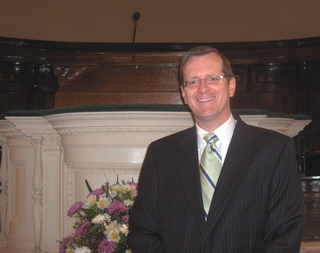A Quote by D.T. Suzuki
Because since the beginningless past we are running after objects, not knowing where our Self is, we lose track of the Original Mind and are tormented all the time by the threatening objective world, regarding it as good or bad, true or false, agreeable or disagreeable. We are thus slaves of things and circumstances.
Related Quotes
A mature person is one who does not think only in absolutes, who is able to be objective even when deeply stirred emotionally, who has learned that there is both good and bad in all people and in all things, and who walks humbly and deals charitably with the circumstances of life, knowing that in this world no one is all knowing and therefore all of us need both love and charity.
The cause of misery, death, and all personal and collective problems is rooted in the mind, the false, copy mind. The real, divine mind is transcendental, the witness, without thinking. Divine mind is without thoughts, all knowing, and eternally blissful. Trying to solve problems by thinking about them never produces a permanent solution because this false mind creates all problems; whereas, divine mind and our inner guidance bring forth solutions for our greatest good and the greatest good for all.
It is when we create things for God's sake that our work most clearly promotes His glory, rather than threatening to compete with it. Thus the true purpose of art is the same as the true purpose of anything: it is not for ourselves or for our own self-expression, but for the service of others and the glory of God.
In the beginner's mind there is no thought, "I have attained something." All self-centered thoughts limit our vast mind. When we have no thought of achievement, no thought of self, we are true beginners. Then we can really learn something. The beginner's mind is the mind of compassion. When our mind is compassionate, it is boundless. Dogen-zenji, the founder of our school, always emphasized how important it is to resume our boundless original mind. Then we are always true to ourselves, in sympathy with all beings, and can actually practice.
There are just four kinds of bets. There are good bets, bad bets, bets that you win, and bets that you lose. Winning a bad bet can be the most dangerous outcome of all, because a success of that kind can encourage you to take more bad bets in the future, when the odds will be running against you. You can also lose a good bet no matter how sound the underlying proposition, but if you keep placing good bets, over time, the law of averages will be working for you.
The terms good and bad indicate no positive quality in things regarded in themselves, but are merely modes of thinking or notions, which we form from the comparison of things one with another. Thus one and the same thing can be at the same time good, bad, and indifferent. For instance, music is good for him that is melancholy, bad for him that mourns; for him that is deaf; it is neither good nor bad.
After all, what is your personal identity? It is what you really are, your real self. None of us is what he thinks he is, or what other people think he is, still less what his passport says he is. And it is fortunate for most of us that we are mistaken. We do not generally know what is good for us. That is because, in St. Bernard's language, our true personality has been concealed under the 'disguise' of a false self, the ego, whom we tend to worship in place of God.
According to the technical language of old writers, a thing and its qualities are described as subject and attributes; and thus a man's faculties and acts are attributes of which he is the subject. The mind is the subject in which ideas inhere. Moreover, the man's faculties and acts are employed upon external objects; and from objects all his sensations arise. Hence the part of a man's knowledge which belongs to his own mind, is subjective: that which flows in upon him from the world external to him, is objective.

































